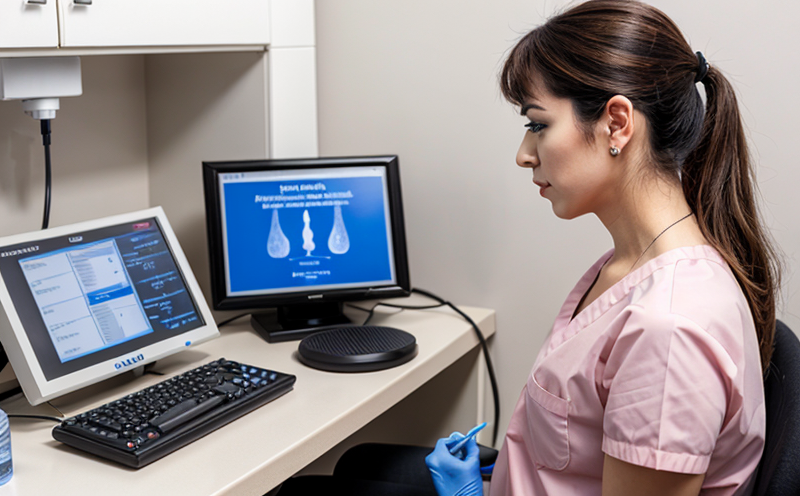Reproductive Hormone Panel Testing in Veterinary Labs
In veterinary medicine, reproductive hormone panel testing is a critical diagnostic tool used to assess the health and function of an animal's reproductive system. This comprehensive test measures multiple hormones that play key roles in regulating reproduction, including luteinizing hormone (LH), follicle-stimulating hormone (FSH), estradiol-17β, progesterone, and testosterone.
Understanding these hormones is essential for diagnosing infertility issues, assessing ovarian function, monitoring ovulation cycles, and evaluating the overall reproductive health of both females and males in various species. The results from such tests can provide vital information that helps veterinarians develop effective treatment plans tailored to each individual animal's needs.
At our laboratory, we employ state-of-the-art technology and methodologies to ensure accurate and reliable test results. Our team of experienced professionals adheres strictly to international standards like ISO 15189:2012 for quality management systems in medical laboratories, ensuring that every aspect of the testing process meets stringent requirements.
Before initiating a reproductive hormone panel test, proper specimen collection and preparation are crucial. Blood samples must be collected into specific anticoagulants to prevent clotting while maintaining hormone stability. These samples should then be handled carefully during transportation to our laboratory for immediate processing. Proper labeling of each sample with accurate patient identification ensures that results can be matched correctly.
The testing process typically involves several steps. First, the collected blood is centrifuged to separate plasma from other cellular components. Plasma containing the target hormones is then analyzed using advanced immunoassay techniques such as chemiluminescence or electrochemiluminescence immunoassays (CLIA/ECLIA). These methods offer high sensitivity and precision, allowing for accurate quantification of hormone levels even in small sample volumes.
After analysis, raw data is processed through proprietary algorithms to generate clinical interpretations aligned with standard reference ranges provided by recognized bodies like the World Health Organization (WHO) or American Society for Reproductive Medicine (ASRM). Interpretative reports are tailored specifically for veterinary applications and include detailed explanations of what abnormal values might indicate in different contexts.
Our laboratories also offer comprehensive follow-up support services, including consultations with board-certified veterinary endocrinologists who can interpret results within the broader context of an animal's overall health. This holistic approach ensures that patients receive not only accurate diagnostic information but also personalized care plans designed to address underlying issues effectively.
In summary, reproductive hormone panel testing in veterinary labs is a cornerstone of modern reproductive medicine, providing valuable insights into an animal’s reproductive status and potential health concerns. By leveraging cutting-edge technologies and adhering closely to international standards, we strive to deliver precise, reliable results that contribute significantly to improved patient outcomes.
Why It Matters
Reproductive hormone panel testing is essential for diagnosing and treating reproductive disorders in animals. Abnormalities in hormones such as LH, FSH, estradiol-17β, progesterone, and testosterone can lead to infertility, irregular cycles, and other serious health issues.
For instance, low levels of LH or FSH may indicate hypogonadism, a condition where the body doesn't produce enough sex hormones. Conversely, elevated estradiol-17β levels could suggest polycystic ovarian syndrome (PCOS) in females, which can cause infertility and other complications.
Progesterone plays a crucial role in maintaining pregnancy; its insufficient production might lead to early abortions or failed implantation attempts. Similarly, testosterone imbalance affects male fertility by reducing sperm count and motility. Early detection of these conditions through thorough hormone panel testing allows for timely interventions that improve reproductive success rates.
Beyond infertility treatments, monitoring reproductive hormones is beneficial in managing other non-reproductive health issues such as metabolic diseases or stress responses. For example, cortisol levels are often assessed alongside reproductive hormones because chronic stress can disrupt normal hormonal balances across the body.
Applied Standards
The performance of reproductive hormone panel testing in veterinary labs is guided by several internationally recognized standards that ensure accuracy and consistency. Key among these are:
- ISO 15189:2012 - This standard sets forth requirements for quality management systems in medical laboratories, ensuring they maintain high levels of proficiency.
- American Society for Reproductive Medicine (ASRM) Guidelines - These provide recommended reference ranges and interpretative criteria specifically tailored to reproductive health concerns.
- World Health Organization (WHO) Recommendations - WHO guidelines offer global best practices that enhance the comparability of results across different laboratories worldwide.
Our laboratory rigorously follows these standards during all phases of testing, from sample preparation to final interpretation. By doing so, we ensure consistency and reliability in our reports, which are vital for making informed decisions about patient care.
Scope and Methodology
The scope of reproductive hormone panel testing encompasses a wide range of parameters relevant to both female and male reproduction. For females, the test includes LH, FSH, estradiol-17β, and progesterone; for males, it covers testosterone levels.
Our methodology involves multiple steps designed to yield precise and accurate results:
- Sample Collection: Blood samples are drawn into specific anticoagulants to preserve hormone integrity during transport.
- Centrifugation: Collected blood is spun at high speed to separate plasma from other components, ensuring purity of the sample for analysis.
- Analysis: Plasma samples are subjected to immunoassay techniques such as CLIA/ECLIA, which allow for highly sensitive and precise measurement of hormone concentrations.
- Data Interpretation: Raw data is processed using proprietary algorithms to align results with established reference ranges. Reports include detailed explanations of potential clinical implications based on observed values.





